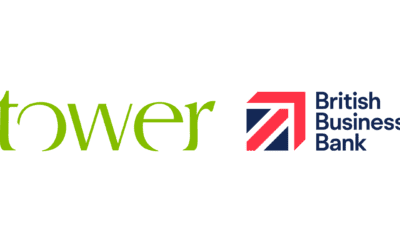Mart Abramov is CEO of the digital tax advisors TaxScouts. Here, he explains everything you need to know about business expenses when you’re self-employed, so you can ensure you’re always paying the right amount of tax.
If you’re self-employed, you’ll be responsible for completing and filing your tax returns. This means you need to know what can be categorised as allowable business expenses, and therefore deducted from your taxable income.
To help you stay on top of your finances and ensure you’re always paying the appropriate amount of tax, I’m going to give you a detailed introduction to business expenses. I’ll talk you through exactly what falls into this category, how to keep the necessary records of your business expenses, and more.
What are allowable business expenses?
Every business has a unique set of running costs, and the work you do as someone who’s self-employed will be no different. However, you will only be able to deduct certain costs from your taxable income as allowable expenses.
So, how do you work out exactly what can and can’t be classed as an allowable expense? Firstly, the expense must have been for the sole purpose of helping your business to make money. HMRC calls this the ‘wholly and exclusive rule’. Secondly, while some items you buy for your business can also be used privately, you will only be able to claim the business part of these costs (I’ll explain more about this later).
To give you a rough idea of what you’ll be able to deduct from your taxable income, costs you can claim as allowable expenses include:
- The cost of buying or renting equipment
- Travel costs (fuel, parking, train fares, etc.)
- Things you buy to sell on (e.g. stock or raw materials)
- Costs relating to your business premises (heating, lighting, business rates, etc.)
- Legal and professional fees
- Advertising or marketing
Can you claim for pre-trading expenses?
Often, before you get to the point of being able to trade, you will have spent money on setting things up. For example, you might have bought equipment and stock, or decided to spend money on advertising. You’re probably wondering whether any of this comes under allowable expenses, and the answer is yes.
When working out your profit, all you have to do is include pre-trading costs along with your ‘day to day’ expenses in your calculations. The only guidelines are that the money must have been spent in the last seven years, and that the costs would have been classed as allowable expenses if they had occurred while you were trading. However, these rules don’t apply to stock.
How do you separate private and business expenses?
As I’ve already mentioned, there are certain items that you might use for both business and personal use. These could include your mobile phone or vehicle. In these situations, you will need to find a reasonable way of dividing your costs and, most importantly, you must be able to show this in the records you keep.
When you’re dividing your costs, think about how often you use these items in your work and, above all else, be fair and reasonable.
What do you need to know about keeping records?
As soon as you become self-employed, you should set up an effective record keeping system. It’s a good idea to update this as you go, because it isn’t always easy to remember what you’ve spent your money on after a while
You’re allowed to keep your records on paper, on a computer, or on a record keeping app. It’s well worth reading through the UK government’s guide to business records if you’re self-employed if you haven’t already, as this outlines everything from what records you should be keeping, to how long you’ll need them for.
When you’re self-employed, it’s important that you have a good hold on your finances and knowing what can and can’t be classed as allowable expenses is a big part of that. This guide covers most of the basics but, to ensure you have all of the information you need, make sure you read HMRC’s comprehensive guide too.


